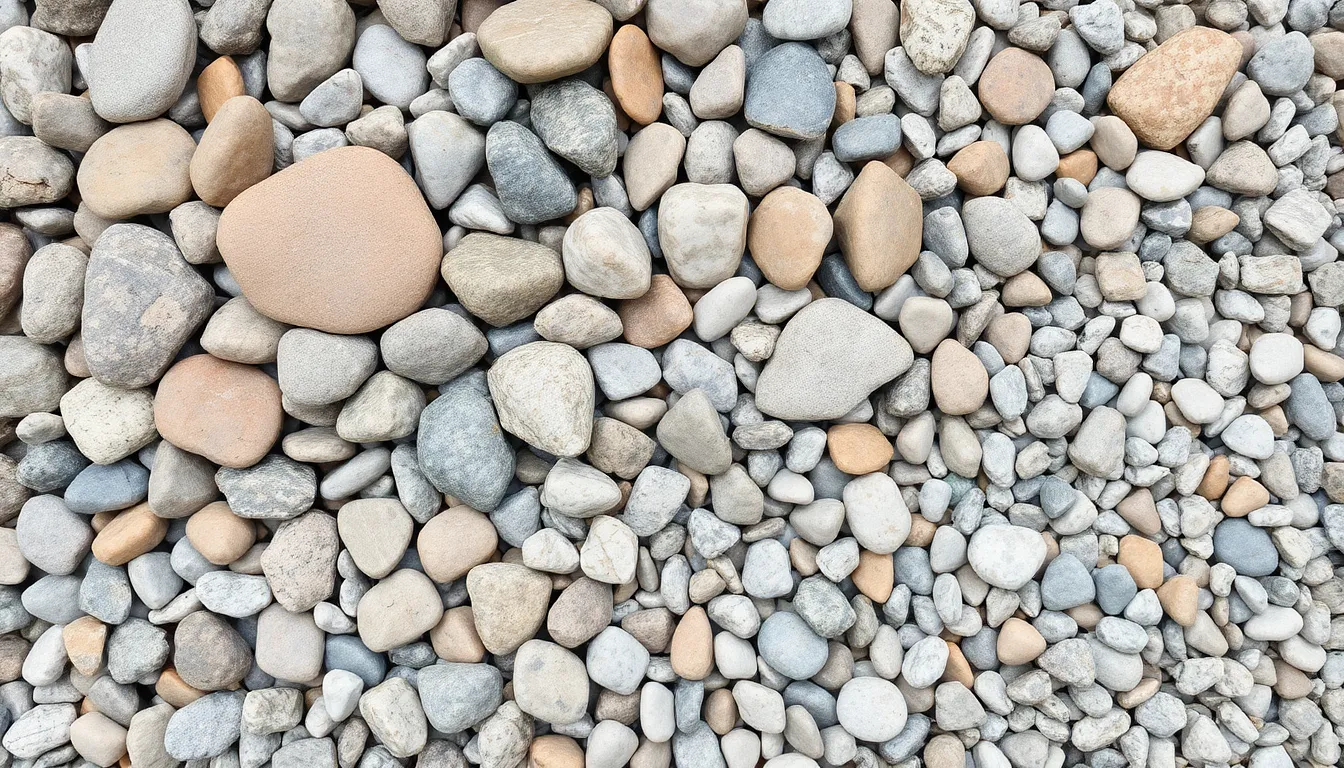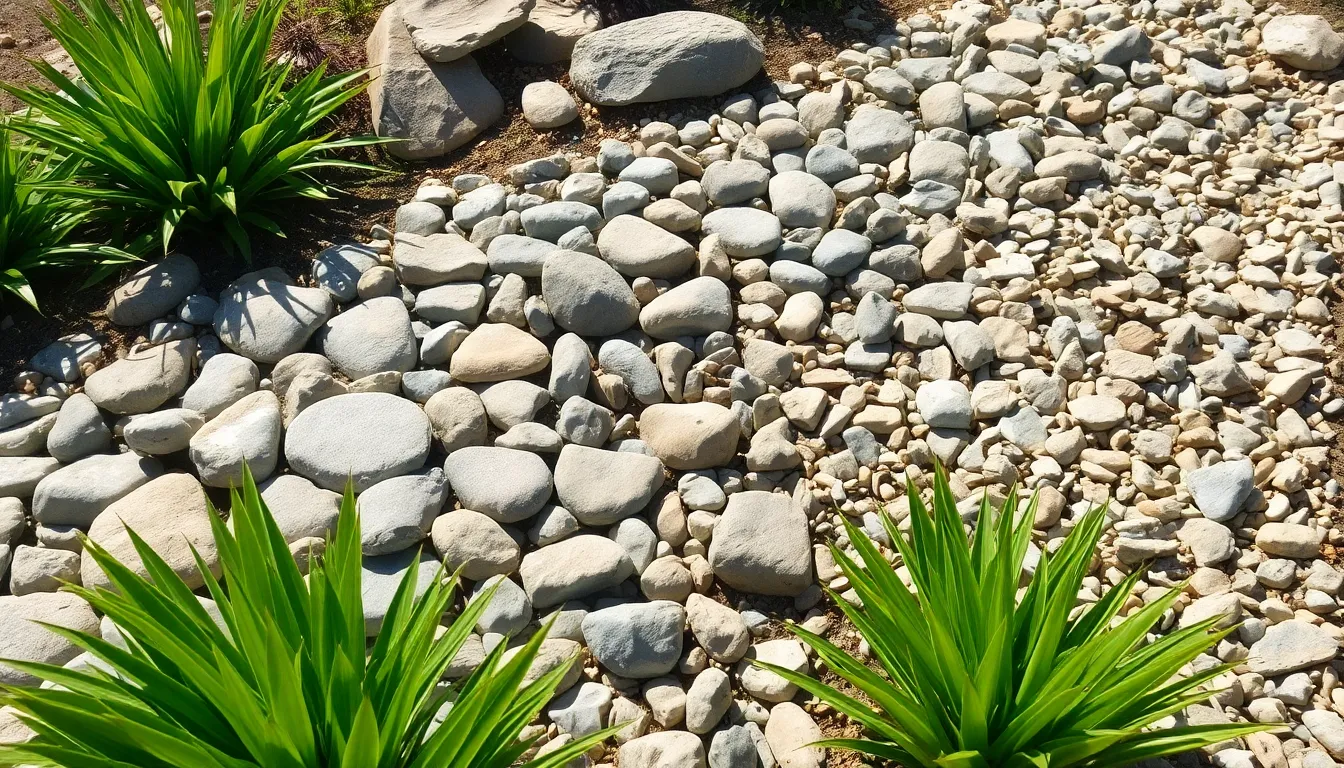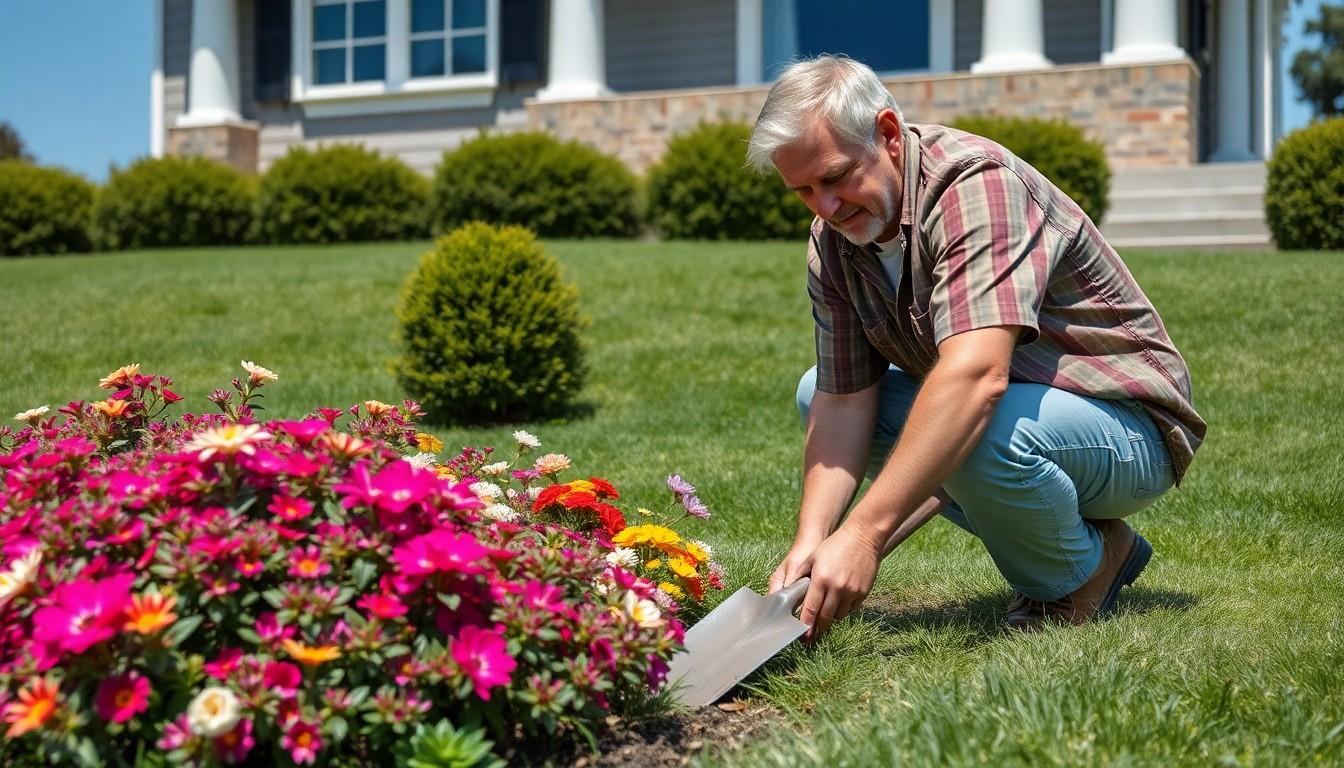When it comes to landscaping, small rocks are the unsung heroes that can transform any outdoor space from drab to fab. Who knew that such tiny stones could pack such a punch? They’re like the secret sauce of garden design—adding texture, color, and a sprinkle of whimsy without breaking the bank. Plus, they don’t need watering or sunlight, making them the ultimate low-maintenance landscaping solution.
Table of Contents
ToggleBenefits Of Small Rocks For Landscaping
Small rocks offer multiple advantages in landscaping, contributing to both functionality and visual interest. Key benefits include aesthetic appeal and low maintenance.
Aesthetic Appeal
Small rocks enhance the beauty of outdoor spaces. They introduce various colors and textures, complementing plants and hardscape features. In addition, small rocks create visual contrast, drawing attention to specific garden areas. Using different sizes and shapes allows for artistic arrangements that elevate the overall design. Designers often utilize small rocks to craft pathways, borders, or focal points, enriching the landscape with natural elegance.
Low Maintenance
Low maintenance requirements characterize small rocks in landscaping. They eliminate the need for frequent watering, unlike organic materials. Small rocks resist decay, preventing issues like mold or pest infestations. Additionally, they don’t require regular replacement, providing long-lasting solutions for garden designs. Choosing small rocks conserves time and resources while maintaining a neat appearance. With adequate placement, small rocks minimize weed growth, further reducing maintenance efforts.
Types Of Small Rocks

Small rocks come in various types, each offering unique characteristics for landscaping. Selecting the right type enhances outdoor aesthetics and functionality.
River Rocks
River rocks are rounded stones typically found in riverbeds. They come in various colors, including gray, brown, and beige. Using river rocks creates a smooth, natural look in gardens or around water features. These stones work well in contoured designs or as mulch alternatives. Their weight provides stability, preventing displacement during heavy rainfall. River rocks also promote drainage, reducing the risk of water pooling. Utilizing these stones fosters a serene atmosphere in outdoor spaces.
Crushed Stone
Crushed stone consists of angular pieces created from larger rocks. Availability ranges from granite to limestone, providing various color options. This type serves multiple landscaping purposes, such as walkways and driveways. Its compactability allows for stable surfaces, making it ideal for high-traffic areas. Crushed stone also aids in weed suppression, minimizing maintenance efforts. The sharp edges of these stones inhibit shifting, promoting durability in landscaping features. Incorporating crushed stone enhances an overall rugged appearance and increases visual interest.
Pea Gravel
Pea gravel features small, smooth stones that resemble peas in size and shape. Typically composed of natural river stones, this material offers a soft texture. Such characteristics create a comfortable walking surface, making it suitable for paths and patios. The variety of colors available caters to different design preferences. It drains well, preventing water accumulation and minimizing erosion. Pea gravel provides an attractive mulch alternative, enhancing flower beds and garden borders. Using this material fosters a casual, inviting environment in outdoor spaces.
Creative Uses Of Small Rocks
Small rocks offer versatile applications that can elevate landscaping designs. Their various forms and textures enhance aesthetic appeal while providing practical solutions.
Pathways And Walkways
Small rocks create stunning pathways and walkways. Gardeners often use crushed stone or gravel to form durable surfaces, ensuring ease of movement. Smooth river rocks provide a comfortable walking experience while adding visual interest. By arranging stones in patterns or lines, creative designs emerge, enhancing yard charm. Unique colors and shapes in the stone selection add character, allowing homeowners to personalize their landscapes.
Garden Borders
Garden borders benefit from the inclusion of small rocks. Decorative borders use small stones to define spaces, separate plant beds, and enhance visual boundaries. Angular crushed stones function well to create clear demarcations without detracting from surrounding flora. Using contrasting colors allows for bold statements, making flower beds stand out. Small rocks also prevent soil erosion while controlling weed growth, ensuring garden areas remain neat and attractive.
Drainage Solutions
Small rocks excel at providing drainage solutions. When placed around plants or in flower beds, they promote water flow and prevent pooling. River rocks and gravel work together to enhance soil aeration while reducing the risk of root rot. Utilizing rocks in areas prone to flooding creates efficient drainage systems. Proper drainage equals healthier plants, making small rocks an effective choice for maintaining vibrant landscapes.
Tips For Choosing Small Rocks
Selecting the right small rocks is essential for achieving the desired look and functionality in a landscape. Consider the following factors to enhance outdoor designs.
Color And Texture Considerations
Colors and textures significantly impact the overall aesthetic of landscaping. Neutral tones like grays and browns create a subtle background, allowing plants to stand out. Bright colors attract attention, serving as focal points within garden designs. Choose stones with varied textures to introduce depth; smooth river rocks contrast beautifully with the rough surfaces of crushed stone. Blending different colors and textures enriches visual interest and complements surrounding elements.
Size And Shape
Sizes and shapes of small rocks influence both practicality and appearance. Rounded river rocks provide a natural, gentle look, making them ideal for pathways. In contrast, angular crushed stones offer stability for driveways and walkways while preventing movement. Selecting uniform sizes ensures a cohesive appearance; however, mixing sizes can create a dynamic effect. Keeping shapes consistent with the landscaping style fosters cohesion and enhances the overall beauty of the outdoor space.
Small rocks are an invaluable asset in landscaping projects. Their versatility allows for endless creative possibilities that can transform any outdoor space. By incorporating different types of small rocks, individuals can achieve both aesthetic appeal and functional benefits.
Whether it’s the smooth elegance of river rocks or the sturdy practicality of crushed stone, each option contributes uniquely to garden designs. Their low maintenance nature makes them a smart choice for anyone looking to enhance their landscape without the hassle of constant upkeep.
With thoughtful selection and arrangement, small rocks can elevate the beauty and functionality of any garden, creating inviting spaces that reflect personal style and taste.







